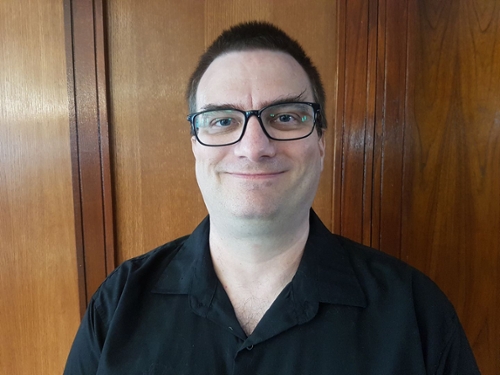
Inferring Different Types of L-Systems Using Artificial Intelligence
Jason Bernard, Ph.D. Candidate
Abstract: Lindermayer systems (L-systems) are a formal grammar systems consisting of a set of symbols (alphabet), an initial set of strings (axioms), and a set of rewriting rules. Each rewriting rule is comprised of a symbol (predecessor), a replacement string (successor), and an optional condition. Starting with an axiom, every symbol in the sting is replaced in parallel in accordance with the condition(s) on the set of rewriting rules with a matching predecessor to produce a new string. The replacement process iterates as needed to produce a sequence of strings. Some symbols can be interpreted as instructions for simulation software towards process modelling. Typically, creating an L-system for a specific process is done by experts by making meticulous measurements and a priori knowledge about the process. This thesis presents a suite of tools, collectively called the Plant Model Inference Tools or PMIT (despite the name, the tools are domain agnostic), for inferring different types of L-systems with a particular focus on deterministic, stochastic and parametric L-systems. The tools are evaluated on known and procedurally generated L-systems. PMIT is able to infer deterministic L-systems with up to 108 rewriting rules compared to the previous state-of-the-art algorithm's limit of two rules. Stochastic and parametric L-systems can be inferred with up to 12 rewriting rules (no general inference algorithm exists in the literature for these types of L-systems). Inferring L-systems of greater complexity algorithmically saves considerable time and effort; however, perhaps more importantly rather than relying on a priori knowledge, inferring a model of process can help reveal the underlying scientific principles.
Biography: Jason Bernard is a Ph.D. Candidate at the University of Saskatchewan supervised by Dr. Ian McQuillan. He received his M.Sc. in Information Systems from Athabasca University in 2016, and B.Sc. with honors in Computer Science from Bishop's University in 1995. His research has focused on modelling using artificial intelligence in different research areas; however, lately in computational biology. He has recently been awarded the Research and High-Performance Computing Support postdoctoral fellowship at McMaster University to investigate models of the brain using artificial intelligence towards diagnosing and treating neurological disease and injury. Jason has published 10 conference and journal papers to date. He has been awarded several prestigious awards such as the NSERC Alexander Graham Bell CGS/D, Excellence in Research award, the Alberta Innovates Technology Futures graduate student scholarship, and was twice recognized for providing outstanding technological leadership while serving in the Canadian Armed Forces. He is a review editor for Frontiers in Artificial Intelligence, and has been on the programming committee for the European Conference on Technology Enhanced Learning since 2014. He is a regular reviewer for conferences and journals involving technology enhanced learning, and artificial intelligence.
Wednesday March 11, 2020 in THRV 271 at 3:30 PM
Doors Open at 3:00 PM

